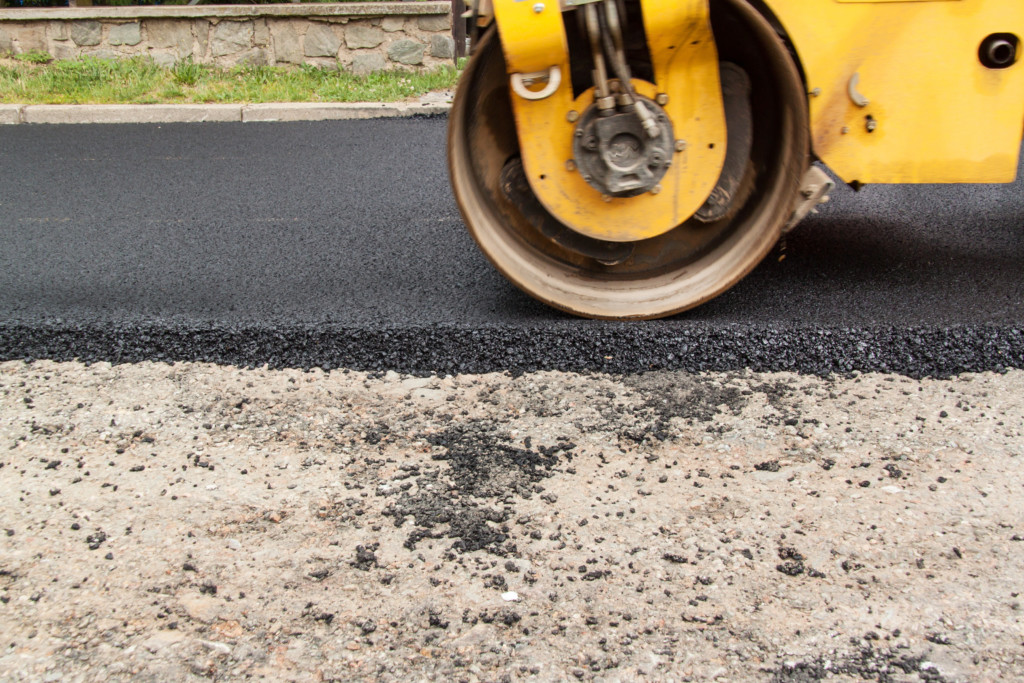
Paving your driveway with asphalt can be very beneficial to your property’s curb appeal and functionality. Many people consider asphalt driveways because of the many benefits and low maintenance requirements, but they don’t know what the process of paving an asphalt driveway involves. Read on to learn everything you need to know about the asphalt driveway paving process, the typical asphalt driveway uses, and its benefits.
What is Asphalt?
Asphalt is a black, sticky substance that is used in the asphalt driveway paving process. It’s made of tar and other petroleum-based products such as coal, limestone, or heavy oil. These three ingredients are heated up and then mixed together to form a liquid. When the liquid starts to cool down, it turns into a sticky substance that can be used for paving driveways. The asphalt driveway process involves spreading the mixture across your driveway and waiting about 24 hours for it to dry before going over it with heavy machinery to level out any bumps or dips in the surface.
Typical Uses for an Asphalt Driveway
Asphalt is the most common type of paving material for driveways because it is durable, easy to maintain, and creates a smooth surface that’s ideal for walking or driving on. Besides driveways, it can also be used in other applications, such as sidewalks, runways, and roads. These are just a few of the many reasons that make asphalt so popular with homeowners, property managers, construction companies, and city planners.
- It looks great
- It’s low maintenance
- It’s relatively inexpensive
- It lasts a long time
Benefits Of Asphalt
Asphalt is a great material for driveways because it is durable and easy to work with. It’s also more affordable than other paving materials, such as concrete or brick. An asphalt driveway will last about 15-20 years if properly cared for. The process can take up to two weeks from start to finish, depending on the size of your property and the depth of the existing asphalt surface that needs replacing.
- Prepare the driveway: This includes removing any grass, weeds, old asphalt, or other obstacles from the area that will be paved. The surface is then leveled and compacted for a smooth finish.
- Lay the sub-base: The next step in the process is to lay down the sub-base, often sand or aggregate stone, that will be used as an anchor for the asphalt material. The thickness of this layer will vary depending on your climate zone and how well it drains water during rainstorms.
- Pouring the liquid asphalt: When pouring the liquid asphalt, heavy equipment will be used to lay down the hot asphalt. The asphalt paving process can be dangerous, so it should only be performed by a professional.
- Rolling process: To make sure all air pockets have been pushed out, a roller truck will use steel rollers to flatten out the surface and make sure it’s compact and smooth.
- Final hardening: Once the asphalt has set, wait several days to walk or drive on your newly paved surface in order to allow it to fully harden.
Asphalt Driveway Pavers In Vancouver
One of the most important aspects of any paving project is choosing a paving company with experience and expertise. Topwest Asphalt Ltd. is a pavement design and construction service company that has been serving businesses and homeowners in the Vancouver area since 2007. To learn more about Topwest Asphalt, contact us by calling 604-755-0300 or request a quote online.





